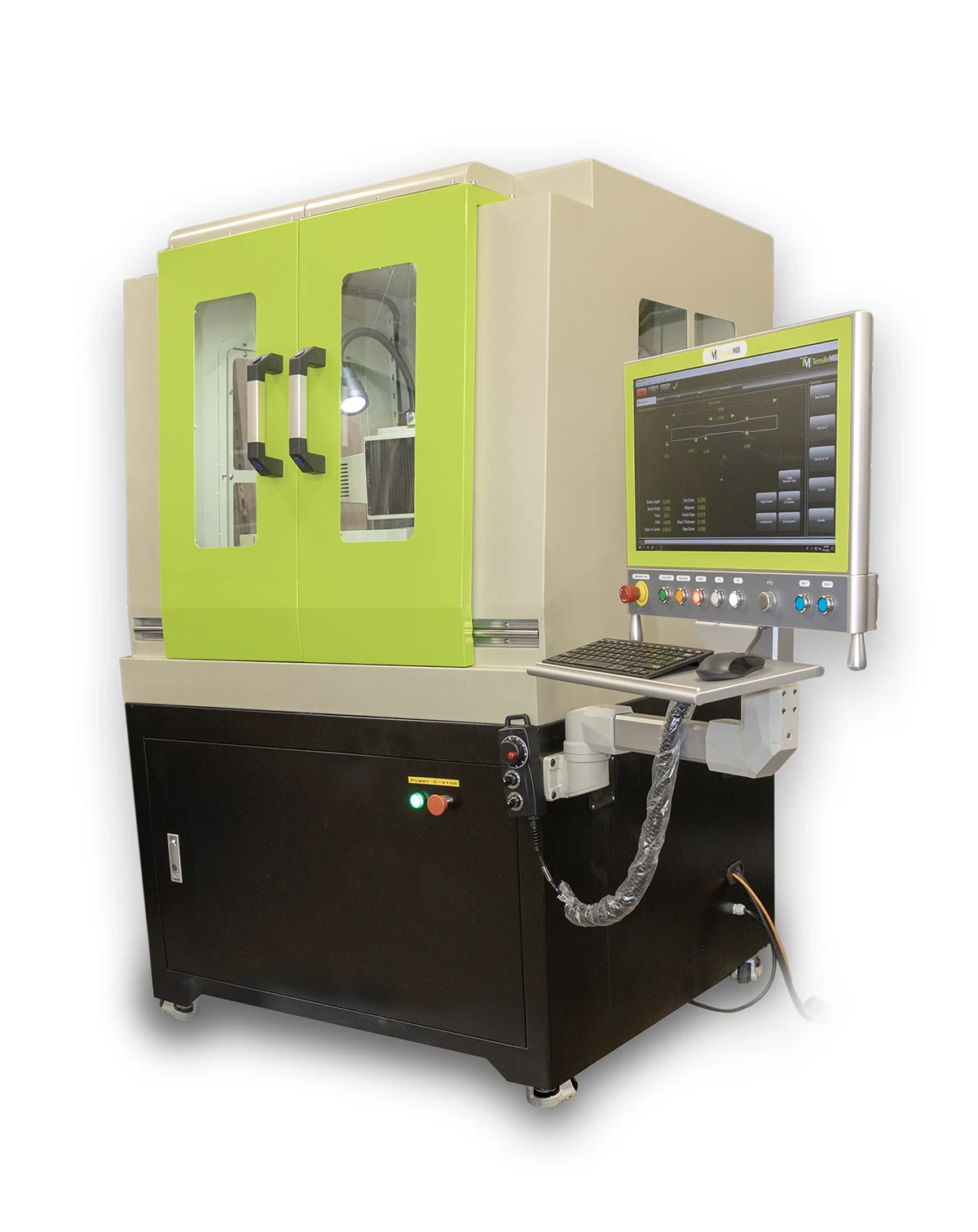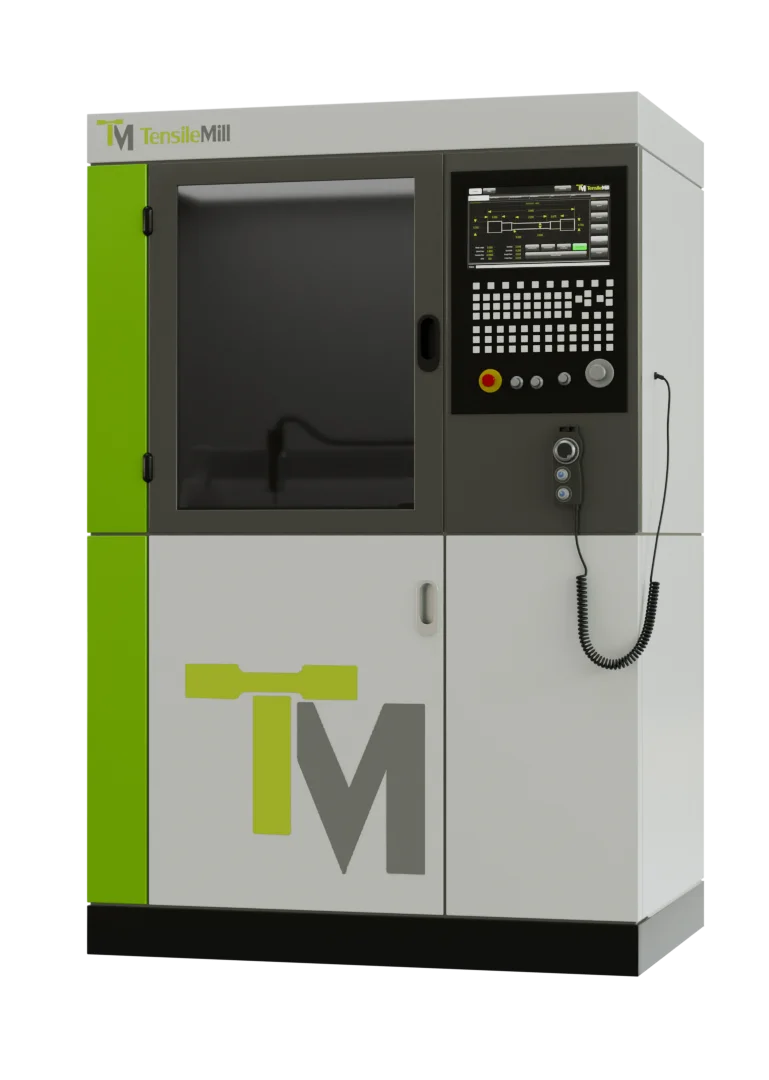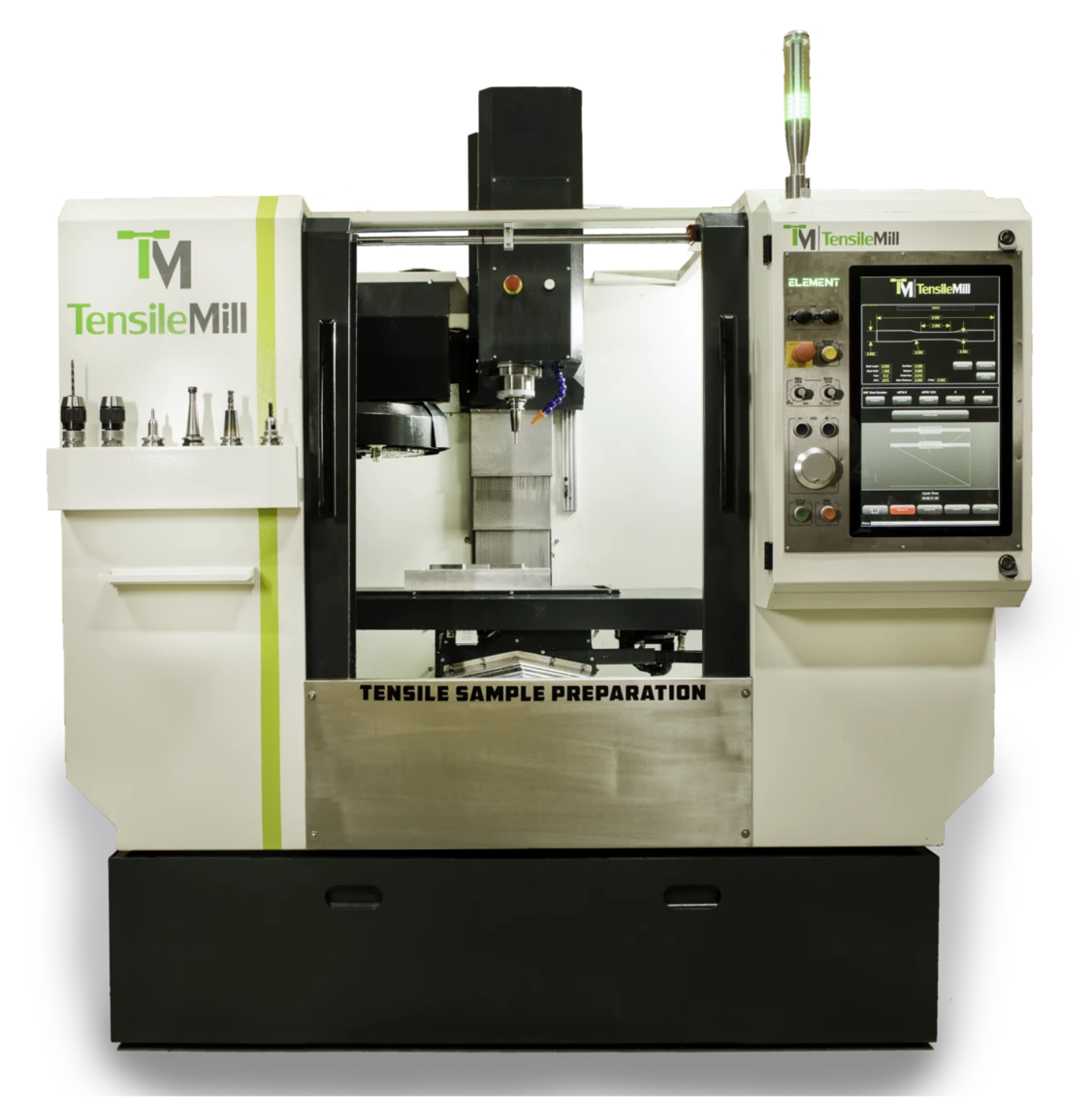
Metal Testing Equipment

Flat tensile specimen preparation machines are designed for producing flat tensile samples in the dog-bone geometry used for mechanical testing. These machines shape raw blanks into consistent, repeatable specimens that match standard dimensions for tensile testing. The ability to maintain steady geometry across multiple samples is important for comparing material performance, verifying batch quality, or conducting research and development work.
This category includes systems suitable for different levels of use, from small research and academic laboratories preparing limited quantities, to quality control environments with daily sample throughput, and industrial testing facilities that require continuous preparation capacity. Machines vary in working envelope, cutting capabilities, and automation level, allowing users to select a model that aligns with material type, testing frequency, and available workspace.
Flat tensile preparation equipment may be used with metals, polymers, composites, and other structural materials. Many systems feature guided machining workflows, making it possible to achieve stable specimen dimensions with minimal CNC experience. This helps support consistent testing conditions when working under ASTM, ISO, or other recognized tensile testing standards.
Products

TensileMill CNC Classic Upgrade – Flat Tensile and Charpy/Izod Impact Specimen Preparation System
The TensileMill CNC Classic Upgrade is a hybrid CNC system for preparing standardized flat tensile and Charpy/Izod impact test specimens in-house. It supports ASTM E8, ASTM E23, ISO, DIN, and JIS geometry formats and provides stable machining accuracy for consistent batch-to-batch results.

TensileMill CNC XL – Flat Tensile Specimen Preparation Machine
The TensileMill CNC XL – Flat Tensile Specimen Preparation Machine is an advanced CNC system built for accurate and repeatable flat specimen machining. Designed for high-volume testing environments, it supports ASTM E8, ASTM A370, ISO 6892-1, and DIN 50125 standards. Its powerful 5 hp spindle, Mach4-based Carbon™ control, and automatic tool changer deliver fast material processing across metals, polymers, and composites. The heavy cast iron frame ensures vibration-free precision, while the intuitive TensileSoft™ interface allows both trained and new operators to achieve consistent results.

TensileMill CNC MINI – Compact Flat Tensile Specimen Preparation System
The TensileMill CNC MINI is a compact CNC system designed for preparing standardized flat tensile test specimens. It supports specimen geometries based on ASTM E8, ASTM A370 / E370, ISO 6892-1, DIN 50125, and JIS Z2201. The system uses a cast iron frame, linear guideways, and a guided TensileSoft™ interface to support consistent specimen dimensions. Operators can select preloaded standard profiles or enter custom dimensions directly into the control interface. The MINI is suitable for routine testing workflows, training environments, and production quality control applications.
FAQs
No. Flat tensile specimen preparation systems are built for easy and guided operation. The user interface displays each machining step clearly, from selecting the standard to setting up the blank and starting the cut. Operators can monitor tool movement and progress through a simple touchscreen without entering complex CNC code.
For experienced users, advanced functions such as toolpath adjustment and machining sequence control are still available. This balance allows both new and skilled technicians to achieve precise, repeatable results without the need for specialized CNC training.
Flat tensile specimen preparation machines can produce standard dog-bone, sub-size, and custom-profile specimens. The system automatically follows the selected geometry, including the gauge length, shoulder radius, and overall dimensions defined by the chosen testing standard.
For research or nonstandard applications, users can enter custom specimen dimensions using the touchscreen interface or upload a CAD-based toolpath. This flexibility allows laboratories to prepare specialized shapes for prototype testing, coating analysis, or advanced R&D work while keeping the same accuracy and repeatability as standardized specimens.
Surface finish is managed by controlling feed rate, cutting speed, and tooling geometry. Most systems include a variable-speed spindle and servo-driven motion, allowing smooth cutting across metals, polymers, or composites.
For fine surface preparation, users can apply multi-step passes or use polishing and sanding attachments. The TensileSoft™ interface and compatible systems provide precise control of finishing parameters to achieve the required surface quality for accurate mechanical testing. In laboratories, a visual or profilometer inspection is typically performed to confirm that the finish meets the testing standard’s requirements.
Flat tensile specimens are produced through milling, where the cutting tool removes material from a fixed blank or sheet to form the dog-bone shape defined by standards such as ASTM E8 and ISO 6892-1. This method is ideal for thin materials, plates, and laminated composites.
Round tensile specimens, by contrast, are made through turning on a CNC lathe, where the material rotates while being shaped into a controlled diameter and gauge length. They are commonly used for bar stock, machined parts, and materials that require uniform stress distribution during testing.
Each method serves a specific purpose: flat specimens are chosen for materials where thickness and surface condition are key testing factors, while round specimens are used when testing isotropic strength or bulk material performance.
Flat tensile specimens can be prepared from many structural and testing materials that can be milled or machined. These include:
- Metals: steel, aluminum, copper, titanium, and other alloys used in production or research.
- Polymers and plastics: thermoplastics, thermosets, and engineering-grade resins.
- Composites: carbon- and glass-fiber laminates, layered plates, and reinforced sheets.
- Other materials: sintered metals or experimental compounds used for R&D.
The systems we provide, including solutions from our partners, handle different hardness levels and cutting parameters while keeping geometry stable across multiple specimens.